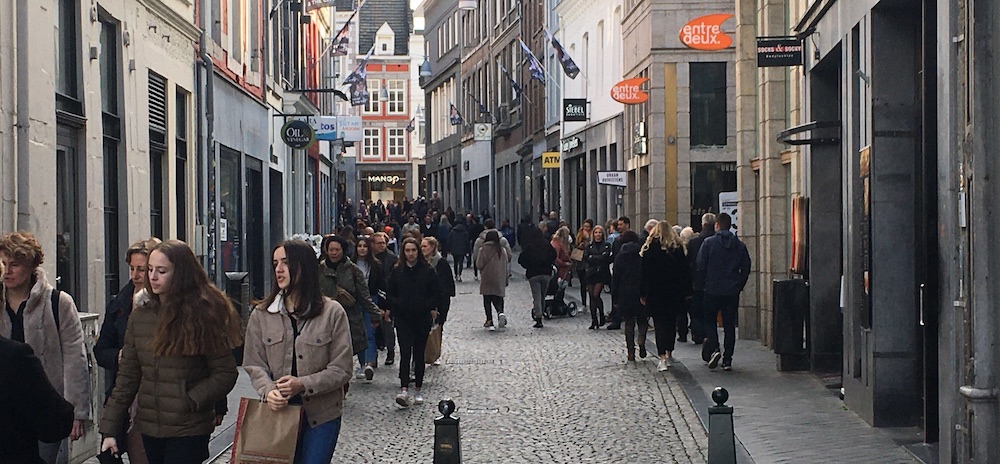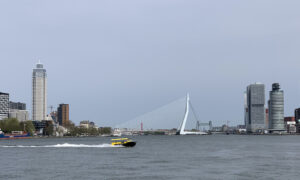It’s weird to be in the Netherlands during the coronavirus epidemic, reading about Italy and China. Because here, little has changed outside of some bare supermarket shelves in the major cities.
Italy? Shut down. Spain? Shut down. Belgium next door? Shut down. France? Shut down. The Netherlands? Whatever … the Dutch – stoic and pragmatic – just aren’t that into panicking.
And the truth is, most people you see out and about are younger, fit and healthy and not in any particular risk category. We just had to wonder if they’re going to run into anyone who is in a risk category.
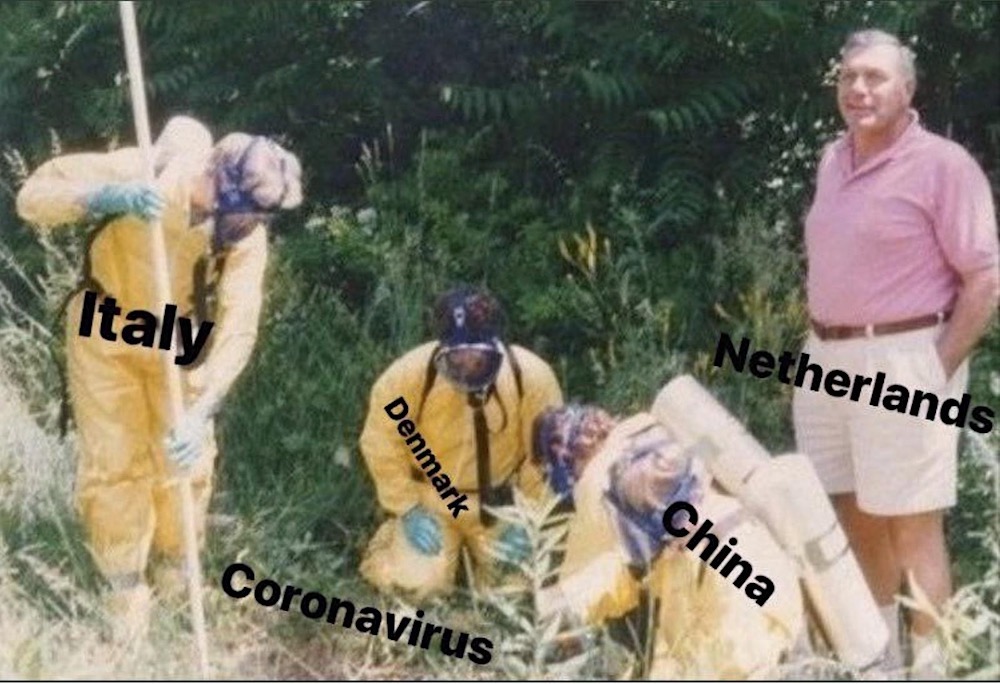
All that changed on Sunday afternoon with media reports that schools, childcare centers and restaurants will close starting Monday, 16 March. Prime Minister Mark Rutte is scheduled to address the nation on Monday to explain this about-face.
But at the moment, nothing is really shut down other than museums and entertainment/sporting events with more than 100 people. You can see the complete list of measures taken by the Dutch government here.
I’m only writing this personal post in lieu of a letter to friends and family as we’ve gotten some “so, are you okay” DMs and emails. The answer is, “Yes, life is bizarrely normal so far.”
We went from our home in Leenderstrijp outside Eindhoven to Maastricht to see our daughter Lale, who attends Maastricht University. Well, she attends virtually now because classes are cancelled. Anyway, we went expecting tumbleweeds rolling across the city’s picturesque squares.
Nope.
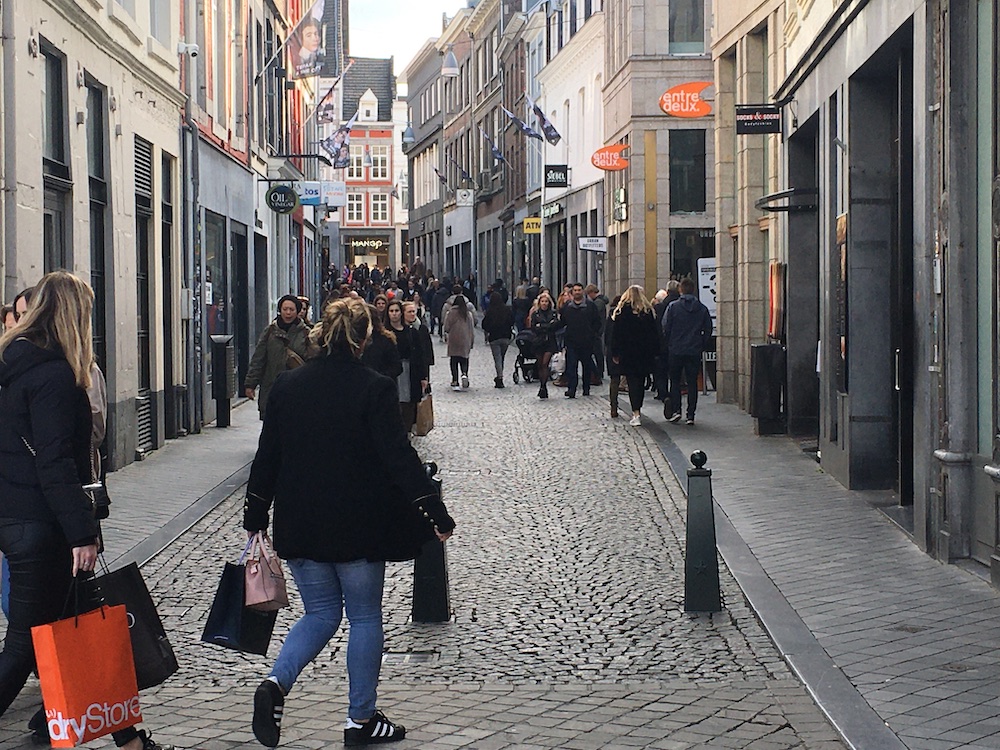
It was pretty much any Saturday, with stores, cafés, restaurants and coffee shops packed.
Today, as I work from my home office, the street past our house has a constant stream of activity: tight groups of competitive cyclists out on a Sunday ride; families walking in the warm early spring weather; tractors as farmers begin their planting and trucks hauling milk and pigs to market.
We worried this won’t last, and it didn’t, with the Netherlands on the verge of following all its neighbors and closing down. These coming weeks are going to test all of Europe and determine which strategy – isolation to flatten the curve of new coronavirus cases so healthcare systems aren’t overwhelmed, or “herd immunity” – is the winning formula.
Just so this isn’t a fluff piece, I’m dropping in some news from various sources including contributor Andriana Boyrikova in Groningen:
On Friday, I was at the city centre to buy some toiletries, and the shops were still open, with lots of people in the streets. Currently in Groningen, there are five cases of coronavirus. One of them is a student who has been to Northern Italy. Not a lot is known about the other cases and whether people have been hospitalized or are under quarantine at home.
People are going crazy, hoarding goods such as toilet paper, Paracetamol, pasta, cans with beans, and other preserves. It’s quite sad, entering Albert Heijn and seeing most shelves are empty ….
Public schools are not closed yet. Universities and HBO (Hoger beroepsonderwijs; literally higher professional education institutions) closed their doors last week and all classes and exams have been canceled. Classes are taking place online. The city landmark – Forum Groningen, which houses the library, study places, horeca (restaurants), cinemas, and offices is also closed. All sports clubs and activities have shut their doors, too.
Events with more than 100 people have been canceled. Some people have already switched to working from home.
Last week, Dutch universities, including Groningen, closed classrooms for the rest of the year, switching to online classes.
This is from Tilburg University administrators:
The Government decided today that educational activities are no longer allowed at universities and universities of applied sciences. The Executive Board has taken a number of measures that are effective immediately and apply until March 31.
- There will be no more lectures on location, only online. Lecturers can make use of livestream possibilities in the lecture halls.
- All examinations on location have been canceled. Tilburg University will let students know as soon as possible how it will deal with the consequences of canceling examinations.
- Students can continue to make use of the library’s lending function and takeaway facilities at our restaurants. A limited number of self-study places are available.
- PhD defenses continue with fewer than 100 attendees.
These new measures, which have come on top of previous ones, have a major impact on our primary process, which we very much regret. It requires a lot of flexibility from both our staff and students. Government policy is necessary to counter the risk of the virus spreading.
This is from Maastricht University administrators:
So far, there has only been one positive test within Maastricht University: an employee who has not been in contact with students.
GENERAL MEASURES
- Everyone, be they students or staff, suffering from a cough, rhinitis or fever should stay at home.
- Everyone coming to UM should abide by social distancing guidelines, i.e. keeping physical distance form others.
- In coordination with their managers, employees work from home as much as possible.
- Employees are advised not to attend external meetings with more than 30 participants.
- Internal meetings with more than 30 participants are cancelled as of 16 March 2020.
EDUCATION
- As of now, attendance requirements for students are suspended.
- As of Monday 16 March 2020, UM will only be offering distance learning.
For the remainder of period 4, faculties will be free to curate their educational offer as they see fit, with the aim of ensuring that students can meet the exam requirements. - Exams in period 4: Large-scale exams taking place in one location will not take place and will be postponed until June. Faculties may carry out exams in alternative ways or postpone them. Details will be communicated within the faculty as soon as possible.
- Teaching activities in period 5 (and possibly 6) will be moved online as far as possible.
Because of the wide variety of education offered within the university, the Executive Board emphasises the importance of offering pragmatic, tailor-made solutions to prevent study delays.
FACILITIES
- UM SPORTS closes as of 14 March 2020.
- We advise you not to study at UB.
- Academic ceremonies, such as PhD defences or inaugural lectures, will be limited to 30 participants.
Dispatches has an office on High Tech Campus, which is mostly empty now as most major Netherlands-based companies that can switch to remote work, or are staggering crews so they don’t interact at manufacturing operations.
President Franklin Roosevelt famously said of the Great Depression, “The only thing we have to fear is fear itself.” We’re in a similar moment now with COVID-19, but what we really have to fear is the unreality of our reality. We’re suddenly trapped not by a visible enemy we can fight, but by an invisible threat experts don’t seem to really understand.
Which has made it difficult up to this point to take coronavirus as seriously as we should.
(Editor’s note: See our running compilation here of measures countries across Europe are taking to stop the spread of the virus.)
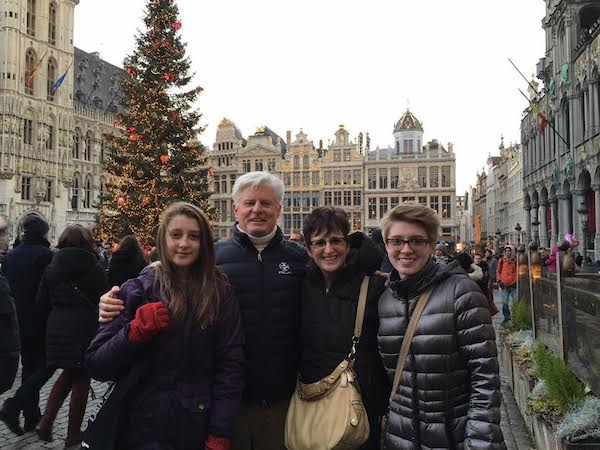
About the author:
Terry Boyd is co-founder of Dispatches Media, based in Eindhoven, Netherlands. Boyd has been a military reporter, business reporter and an entrepreneur, selling Insider Louisville, a pure-play digital news platform, in 2010.
Boyd & Family are long-time expats and have lived in Turkey, Germany and the Netherlands.
Co-CEO of Dispatches Europe. A former military reporter, I'm a serial expat who has lived in France, Turkey, Germany and the Netherlands.


